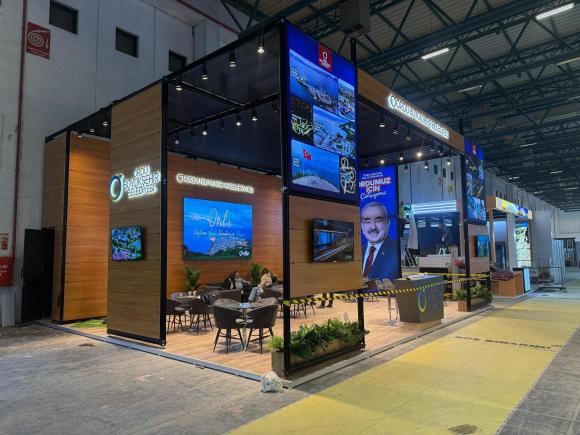New battery technology key to US electric vehicle push, experts say
[ad_1]
The U.S. demands to generate a “road map” to the batteries of the long run even as it solves current provide chain concerns, professionals advised a House panel on Thursday.
President Biden has pushed domestic automakers to electrify their car or truck fleets, a intention that in the small phrase will have to have securing provide chains for critical minerals like lithium and cobalt that are utilized in lithium-ion batteries, experts say.
But in the extended expression, the U.S. have to proactively glance forward to the following technology of batteries — and the new mines, laboratories and refineries that will aid acquire them, figures representing science, govt and business explained to users of the Property Science Committee at a area listening to in Chicago.
“Asian international locations helped transfer ahead due to the fact they had a road map of in which they imagined the market would be,” Venkat Srinivasan, director of the Argonne Collaborative Middle for Electrical power Storage Science, explained to lawmakers.
“So we want to inquire what chemistries may be the respond to — two years from today, what do we have to have?” Srinavasan requested. “Ten years from now, what do we need? And then start out to create out the industrial foundation that lets us to satisfy it.”
Before this thirty day period, Reps. Sean Casten (D-Sick.) and Paul Tonko (D-N.Y.) released a monthly bill to immediate the Section of Vitality to make a sensible plan for how to adapt the present-day electrical program to fulfill the demands of the surging number of electrical automobiles (EVs).
Reaching those people plans will involve the U.S. to recommit to technologies it at the time designed — but used decades neglecting, said Chibueze Amanchukwu, an assistant professor at the University of Chicago.
When an early leader in lithium-ion battery technological innovation and photovoltaic panels, “America lagged in translating these discoveries to the marketplace and fell driving its counterparts in Europe and Asia,” Amanchukwu stated.
Producing up misplaced floor suggests largely building a new sequence of source chains — rapidly, according to Chris Nevers, senior coverage director at EV maker Rivian.
American EV companies at the moment depend on lithium-ion batteries — scaled up versions of types that electricity devices these as smartphones and pcs, and types whose essential mining and processing web-sites lie almost exclusively outside the house U.S. borders, as The Hill previously documented.
Securing the provides essential for EV batteries calls for a multi-move course of action, the House panel mentioned, commencing with miners digging up raw lithium, manganese, graphite and cobalt, adopted by processors properly pulling out the pure metals.
These pure metals are mixed into battery parts these types of as anodes, cathodes and electrolytes, which are then combined into battery cells that make up completed batteries.
Almost each stage of this system — and each and every source deposit it is dependent on — is at the moment found outdoors the United States.
That means that although manufacturers need to safe international provides and build domestic mines, they also will need to establish tools, guidelines and technologies to improved recycle what they have and to look for options, in accordance to Rep. Monthly bill Foster (D-Ill.), who chaired the listening to.
Although the U.S. will have to get treatment to stability mining with environmental and land rights considerations, that purpose is attainable, Nevers stated.
“At least from the uncooked materials aspect as much as what they phone ‘midstream’ — that could all be finished below. We have refineries listed here. We have the expertise,” Nevers stated.
But around the lengthier term, the United States requirements “pie-in-the-sky” battery systems that make use of the metals it has in huge provide, Amanchukwu reported, specially types better suited to hefty purposes like air vacation, cargo ships and transportation vans.
“We have to have storage that allows deep decarbonisation that is also inherently safe, with considerable elements, that can last quite a few decades and be entirely recycled,” Srinavasan said.
Considering that “such chemistry is not achievable with incremental improvements in today’s lithium ion batteries,” the U.S. requires to fund “a primary science strategy that provides new insights into battery storage,” Srinivasan stated.
This press for new technologies will pressure Congress “to form of become a enterprise capitalist and decide which minerals to invest in,” said Foster.
To some extent, the U.S. merely needs to assistance organizations by now checking out lithium options, Amanchukwu said, while Srinavasan emphasized “substitutions for nickel and cobalt and these materials” as the highest priority.
The inter-agency Federal Consortium on Advanced Batteries (FCAB) seeks to get rid of the have to have for both cobalt and nickel in lithium-ion batteries by 2030, according to a House simple fact sheet.
But pushing for a major raise in the dimensions of the U.S. electric vehicle fleet raises a further vexing situation, explained Casten: how the U.S. can deliver adequate reduced-carbon electric power to satisfy demand from customers and get it where by it’s required.
“We need to develop more wires, we need to develop them in the correct spots — which is not automatically wherever the loads are suitable now,” Casten explained.
An additional pressing question is around storing power at moments when intermittent renewables like wind, hydropower and solar are considerable so it is offered when they are not, specialists pointed out.
With prolonged-time period battery storage currently prohibitively highly-priced, “we have to get started seeking at alternate options like points like hydrogen as a usually means of storing electrical power,” Srinavasan said.
“Unfortunately, that requires us to store the hydrogen, which indicates that the locale issues a whole lot. So it’s heading to get the job done in some components of the state, not in others.”
For the most recent news, temperature, athletics, and streaming video, head to The Hill.
[ad_2]
Source connection






